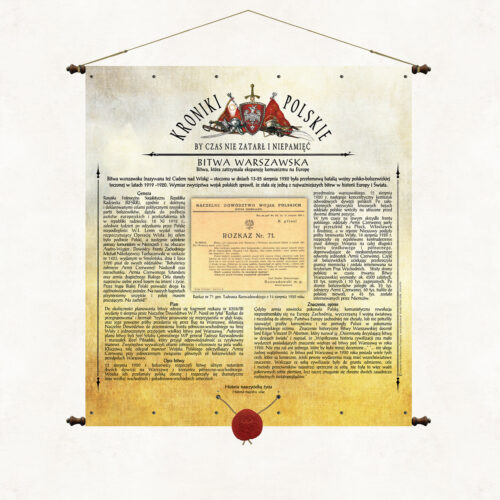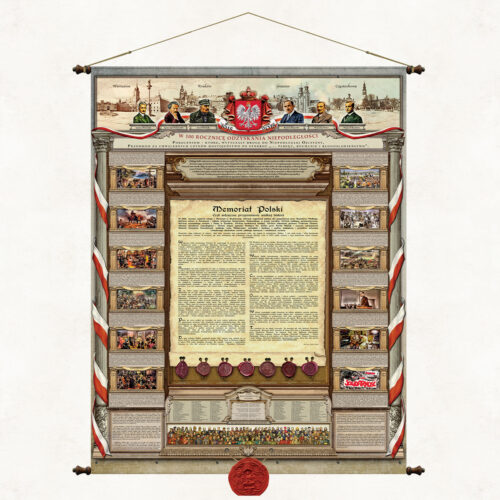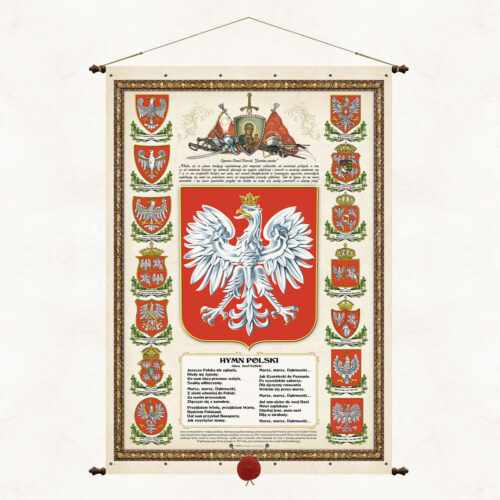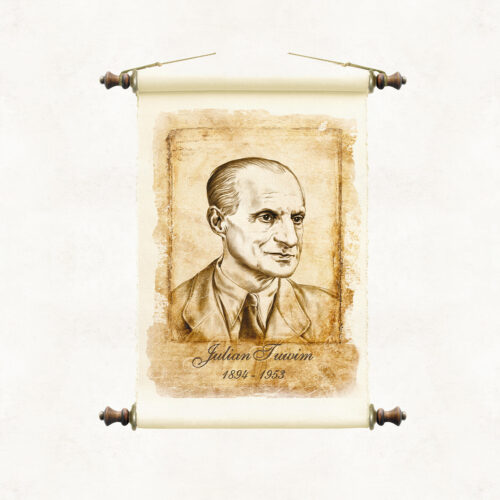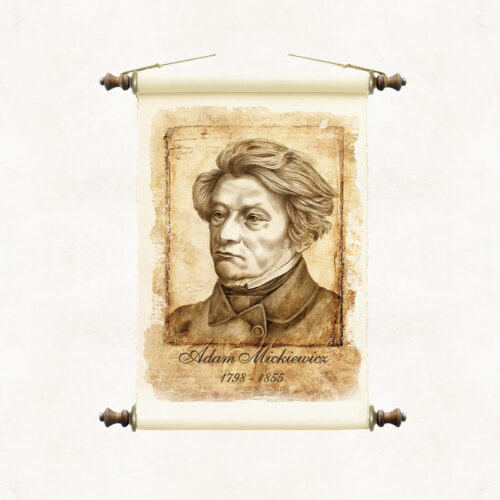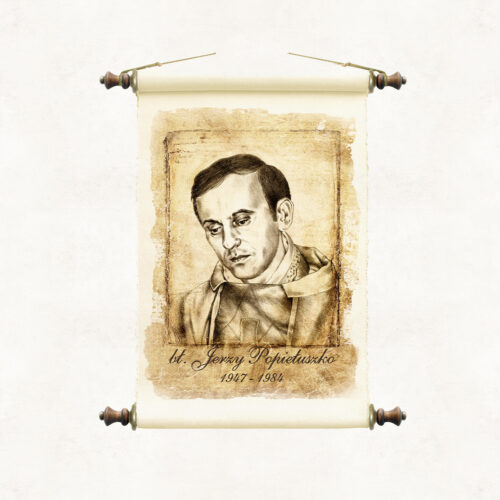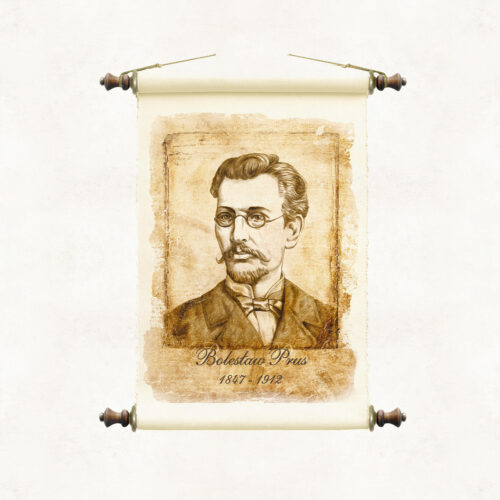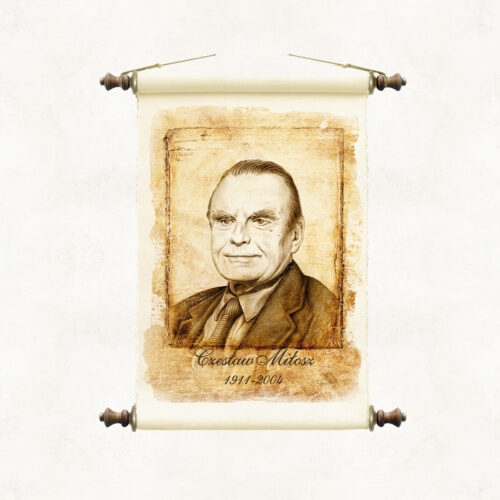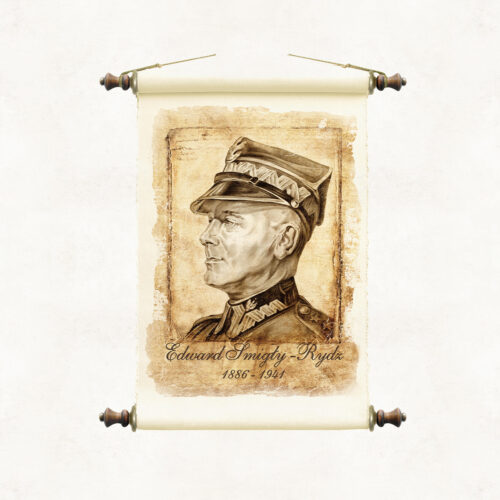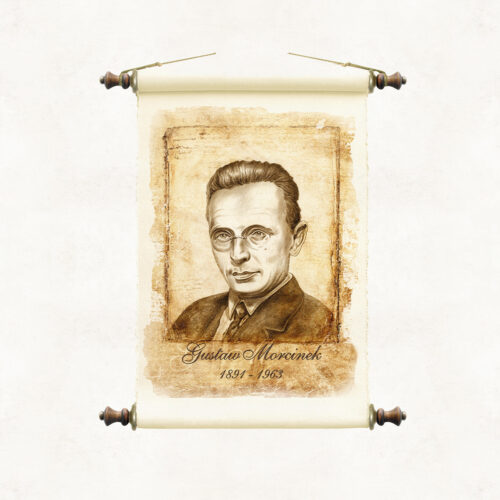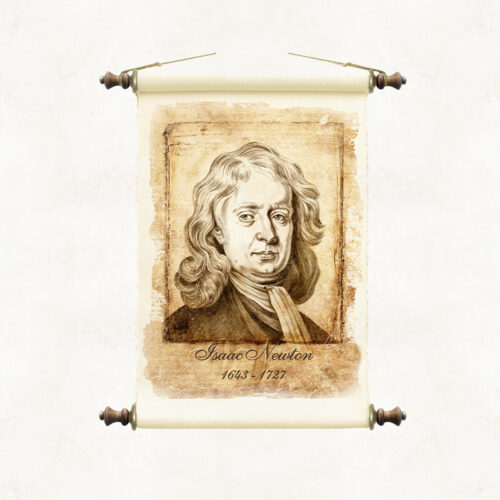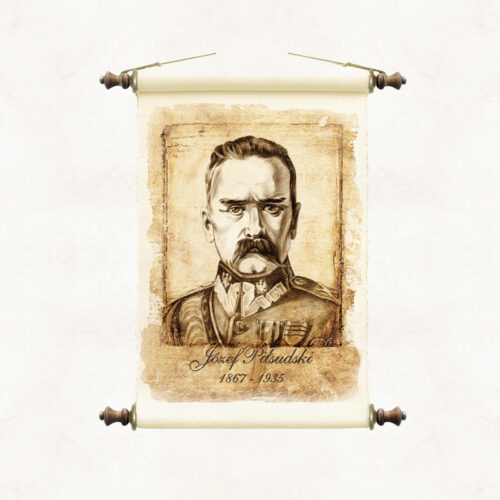The Polish Memorial is a unique board, a one-of-a-kind vademecum of Polish history, presenting in a condensed verbal and graphic form the principles of the thousand-year-old heritage of the Polish nation. The main theme of the publication is an anniversary calendar of Polish history written in the form of a historical essay by prof. Andrzej Nowak, an outstanding scientist and committed patriot. The 100th anniversary of regaining independence became an impulse for the historian to present other significant anniversaries. Describing over 1,000 years of Polish history, the professor brings us closer to the historical continuity of Polish fate and the importance of the generational transmission of culture and tradition.
At the bottom of the memorial, we have placed replicas of historical seals of Polish rulers and people and institutions significantly inscribed in Polish cultural heritage. Apart from the title essay, there are symbols of national identity on the board:
- national emblem and anthem,
- engravings depicting the former capitals of Poland - Gniezno, Krakow and the modern capital - Warsaw, and Częstochowa as the spiritual capital of the country,
- images of the most outstanding Poles, those considered to be the Fathers of Independence in 1918, and representatives of generations that have maintained their independence deed and legacy over the millennium,
- significant messages and statements about Poland and Poles,
- a brief description of the history of Poland's independence and symbolically illustrating it with engravings.
The canons of Polishness written down and illustrated on the board by the editors, apart from their educational function, are also an aesthetic element of the patriotic decor of apartments and offices, expressing respect and attachment to tradition.

